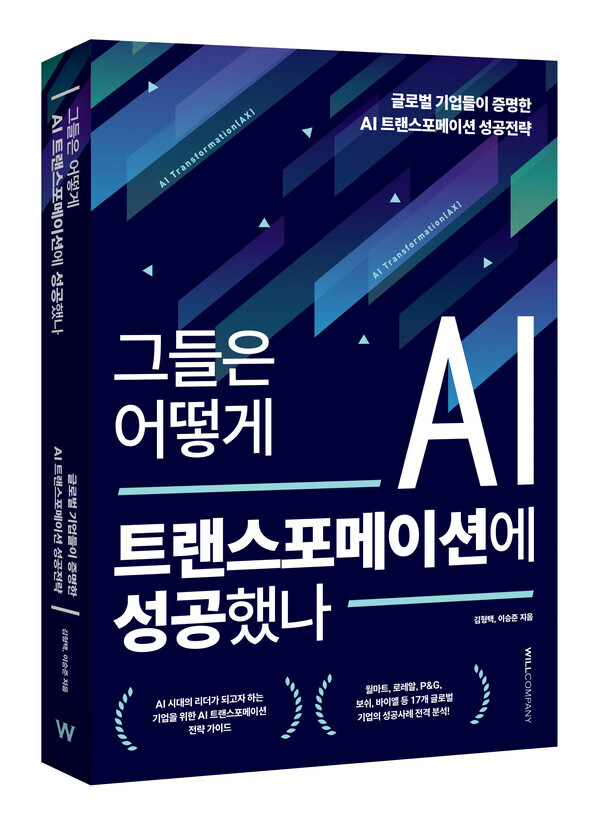 A new book, How They Succeeded in AI Transformation by Kim Hyung-taek and Lee Seung-jun, is offering a roadmap for traditional businesses navigating the complex landscape of artificial intelligence (AI). The authors argue that AI transformation is no longer an option but a necessity for businesses to stay competitive in the rapidly evolving digital age.
A new book, How They Succeeded in AI Transformation by Kim Hyung-taek and Lee Seung-jun, is offering a roadmap for traditional businesses navigating the complex landscape of artificial intelligence (AI). The authors argue that AI transformation is no longer an option but a necessity for businesses to stay competitive in the rapidly evolving digital age.
The book delves into how traditional companies can leverage generative AI to successfully undergo digital transformation. It outlines the strategies and approaches needed to integrate AI technology into existing digital transformation strategies, fundamentally changing a company's strategy, organization, processes, ways of working, value chain, products and services, and business model.
Kim and Lee define AI transformation as a long-term management strategy that combines AI technology with existing digital transformation strategies. They emphasize the importance of analyzing the changing factors in the digital environment and redefining the company's vision and strategic direction from a long-term perspective. The authors also advise companies to identify their core competencies and strengthen customer experiences while securing new business models.
The book is divided into four parts. Part one discusses the competitive landscape among global ICT companies to capture the market with the advent of generative AI, and the changes in digital transformation strategies triggered by generative AI. Part two outlines the strategic implementation plan for AI transformation at each stage and the strategy for innovating a company's value chain. Part three analyzes AI transformation strategy cases of companies in various industries, such as manufacturing, distribution, fashion, beauty, finance, media, medical, and healthcare. In part four, the authors analyze the reasons for the failure of AI transformation in traditional companies and introduce five rules for success.
The book provides examples of companies that have successfully implemented AI transformation, including Walmart, IKEA, Nike, Bosch, Starbucks, Bloomberg, and Bayer. These companies represent a wide range of industries, from retail and consumer goods to fashion, manufacturing, finance, food and beverage, media, and healthcare.
The authors emphasize that while 97% of global company executives believe that generative AI will change businesses and industries, and that significant investment will be made at the organizational level over the next 3-5 years, it is crucial to approach AI transformation from a long-term perspective. They caution against hasty "me-too" strategies, advising companies to link their AI transformation efforts with their existing digital transformation strategies.
“AI transformation is no longer a matter of if, but when,” said Kim Hyung-taek, co-author of the book. “Companies that fail to adapt to the AI revolution risk being left behind.”
[Copyright (c) Global Economic Times. All Rights Reserved.]





























